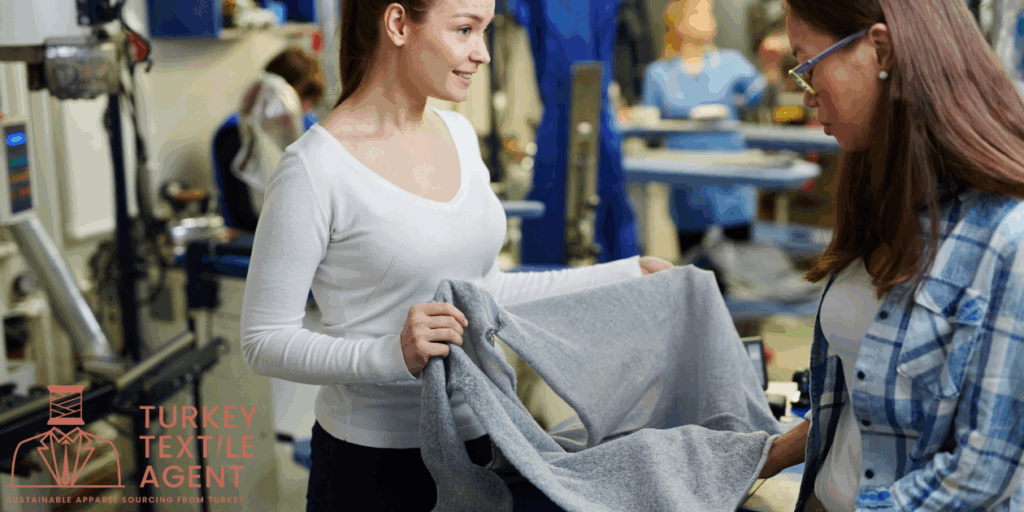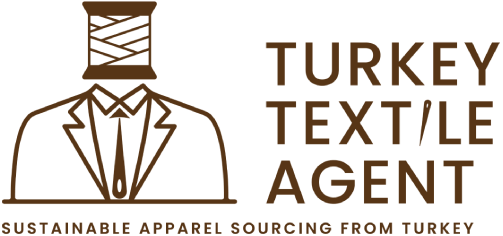Turkey has long been recognized as a hub for high-quality textile production, offering exceptional craftsmanship, innovation, and competitive pricing. As an integral player in the global textile industry, understanding the Turkish production process is crucial for anyone looking to source or partner with Turkish manufacturers. From initial concept development to the final delivery of products, the Turkish production process is a well-oiled system that prioritizes quality, efficiency, and sustainability. This article takes a deep dive into each stage of the process, highlighting the key factors that make Turkish textiles a preferred choice worldwide.
The Foundation of the Turkish Production Process: Concept Development
The journey of any textile product begins with concept development. In Turkey, this phase is vital as it sets the tone for all subsequent steps. Turkish manufacturers prioritize collaboration with designers, brands, and buyers to fully understand the desired outcome. The process typically involves:

- Initial Consultation: Brands work closely with Turkish textile experts to define the product specifications, such as fabric types, colors, patterns, and design requirements. This step often includes mood boards, sketches, and prototypes.
- Material Selection: One of the key aspects of Turkish production is the vast range of textile materials available, including cotton, wool, silk, and synthetic fibers. The choice of material is critical as it impacts the final product’s texture, durability, and cost.
- Trend Analysis: Turkish manufacturers stay ahead of global trends by conducting thorough market research. This ensures that the products they create align with international preferences and market demands.
By engaging in such detailed concept development, Turkish manufacturers ensure that each product meets the buyer’s expectations from the start.
The Design Phase: Where Creativity Meets Precision
Once the concept is established, the design phase brings the idea to life. Turkey’s textile industry is renowned for its skilled designers who combine creativity with precision to produce unique, high-quality designs. This phase includes:
- Pattern Making: Expert pattern makers in Turkey take the conceptual designs and translate them into patterns that can be used for production. Advanced technology is employed to ensure patterns are accurate and scalable.
- Sampling: After the patterns are created, sample products are made. These samples help identify any design flaws and allow for adjustments before full-scale production begins. Turkish textile manufacturers are known for their high-quality prototypes, ensuring that products meet international standards.
- Digital Fabric Printing: In addition to traditional methods, Turkey is at the forefront of digital fabric printing technology. This allows designers to experiment with complex patterns and vibrant colors, offering more flexibility and faster turnaround times.
The design phase is an important step in ensuring that the final product reflects both the brand’s vision and the consumer’s expectations.
Sourcing Materials: Turkey’s Global Supplier Network
A major strength of the Turkish production process is the country’s ability to source materials from both domestic and international suppliers. The textile industry in Turkey benefits from a well-established network of suppliers, providing high-quality raw materials for manufacturing. Key factors include:
- Local Sourcing: Turkey is one of the world’s largest producers of cotton, making it a prime location for sourcing high-quality cotton fabrics. The Aegean region in particular is known for its cotton farming, which is ideal for producing luxurious fabrics.
- Imported Materials: Turkey also has access to a wide variety of imported materials from other leading textile-producing nations. This allows for a diverse range of fabric types and textures, ensuring that products meet the needs of different markets.
- Sustainability Initiatives: Many Turkish manufacturers prioritize sourcing eco-friendly materials and adopting sustainable practices. This is an essential part of the country’s commitment to environmental responsibility and meets the increasing consumer demand for eco-conscious products.
The Manufacturing Process: High-Tech Meets Handcraft
Once materials are sourced, the manufacturing phase begins. Turkey has become a powerhouse in the textile industry due to its combination of advanced manufacturing technologies and traditional craftsmanship. Key processes include:
- Weaving and Knitting: Turkey boasts some of the most advanced weaving and knitting technology available, including Jacquard looms, air-jet looms, and circular knitting machines. These technologies allow for the production of intricate fabrics with complex patterns and high durability.
- Dyeing and Printing: Turkish manufacturers utilize both traditional and modern techniques for dyeing and printing textiles. The country is known for its vibrant color palettes and the ability to create intricate designs using screen printing, digital printing, and sublimation.
- Finishing: After weaving and dyeing, textiles undergo finishing processes such as calendering, sanforizing, and chemical treatments to enhance texture, shrinkage control, and fabric strength. These finishes contribute to the premium feel of Turkish textiles.
Combining high-tech machinery with artisanal techniques gives Turkish textiles their unique edge in the market, ensuring products are both innovative and of the highest quality.
Quality Control: Ensuring Perfection at Every Stage
Quality control is a critical element throughout the Turkish production process. The emphasis on strict quality standards ensures that each product is thoroughly tested before being sent out for delivery. Here’s how quality control is embedded in the process:
- Fabric Testing: Before production begins, raw materials are tested for strength, colorfastness, shrinkage, and durability. Turkish manufacturers use state-of-the-art testing equipment to ensure fabrics meet international standards.
- In-Process Inspections: During manufacturing, quality checks are conducted at every stage, from weaving to dyeing to final stitching. This ensures any defects or inconsistencies are detected early, minimizing waste and rework.
- Final Inspection: Before shipment, each product undergoes a final inspection to ensure it meets the agreed-upon specifications. This includes checks for defects, color consistency, and overall craftsmanship.
By incorporating these stringent quality control measures, Turkish textile manufacturers are able to deliver products that exceed global standards.
Packaging and Delivery: From Factory to Global Markets
Once the products pass quality control, they are ready for packaging and delivery. Turkey’s advanced logistics infrastructure ensures that textiles are delivered efficiently, maintaining the quality and integrity of the products. Key elements of the delivery process include:
- Packaging: Turkish manufacturers use high-quality packaging materials to protect textiles during shipping. Packaging is customized to fit the nature of the product, whether it’s a delicate garment or a bulk order of fabric.
- Shipping Logistics: Turkey’s proximity to major international markets makes it a convenient hub for textile export. Manufacturers work closely with logistics partners to ensure timely and cost-effective delivery to destinations across the globe.
- Customs Compliance: Turkish textile exporters are well-versed in international trade regulations, ensuring that all shipments comply with the customs requirements of the destination country. This minimizes delays and ensures smooth delivery.
Efficient packaging and delivery practices help maintain the integrity of the products and ensure they reach consumers in perfect condition.
Sustainability and Innovation: Turkey’s Commitment to a Greener Future
As the global textile industry moves toward greater sustainability, Turkey is positioning itself as a leader in eco-friendly production. Turkish manufacturers are increasingly adopting green technologies and sustainable practices to reduce environmental impact. This includes:
- Sustainable Materials: Many Turkish textile manufacturers now prioritize the use of organic and recycled materials, ensuring their products have a lower carbon footprint.
- Water and Energy Efficiency: Turkish factories are investing in water-saving technologies and energy-efficient machines to reduce consumption and waste.
- Eco-friendly Dyeing: Advances in dyeing technology, such as waterless dyeing and the use of natural dyes, help minimize pollution and resource use.

Through these initiatives, Turkey is contributing to the global effort to create a more sustainable textile industry while maintaining high production standards.
Conclusion
The Turkish production process is a comprehensive and well-coordinated system that takes products from concept to delivery with a strong focus on quality, efficiency, and sustainability. With a rich history in textile manufacturing, Turkey continues to be a leading destination for businesses seeking high-quality textiles that meet global standards. From the design phase to final delivery, the Turkish production process ensures that every step is executed with precision and care, resulting in products that are not only beautiful but also durable and sustainable. With its blend of tradition, innovation, and sustainability, Turkey remains a key player in the global textile industry.

